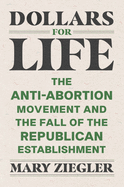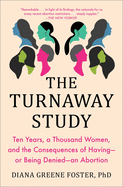Dara Horn, People Love Dead Jews
Dara Horn, People Love Dead Jews
Price includes state and local tax. Purchase through this screen for store pickup.
To have this book shipped, please use our partner Bookshop.org
To purchase this title as an audiobook, please use our partner Libro.fm
Winner of the 2021 National Jewish Book Award for Con-tem-po-rary Jew-ish Life and Prac-tice
Finalist for the 2021 Kirkus Prize in Nonfiction
A New York Times Notable Book of the Year A Wall Street Journal, Chicago Public Library, Publishers Weekly, and Kirkus Reviews Best Book of the Year
Brief Description:
"A startling exploration of how Jewish history is exploited to comfort the living. Reflecting on subjects as far-flung as the international veneration of Anne Frank, the blockbuster travelling exhibition called "Auschwitz," the Jewish history of the Chinese city of Harbin, and the little known "righteous-gentile" Varian Fry, Dara Horn challenges us to confront the reasons why there might be so much fascination with Jewish deaths, as emblematic of the worst of evils the world has to offer, and so little respect for Jewish lives, as they continue to unfold in the present. Horn draws upon her own family life -- trying to explain Shakespeare's Shylock to a curious 10-year-old, her anger when swastikas are drawn on desks in her children's school in New Jersey, the profound and essential perspective offered by traditional religious practice, prayer, and study -- to assert the vitality, complexity and depth of this life against an anti-Semitism that, far from being disarmed by the mantra of "Never forget," is on the rise"--Provided by publisher.
Review Quotes:
Dara Horn proposes a disturbingly fresh reckoning with an ancient hatred, refusing all categories of victimhood and sentimentality. She offers a passionate display of the self-renewing vitality of Jewish belief and practice. Because antisemitism is a Christian problem more than a Jewish one, Christian readers need this book. It is urgently important.--James Carroll, author of The Truth at the Heart of the Lie
Dara Horn's thoughtful, incisive essays constitute a searing investigation of modern-day antisemitism, in all its disguises and complications. No matter where Horn casts her acute critical eye--from the ruins of the Jewish community in Harbin, China, to the tragedy at Pittsburgh's Tree of Life synagogue--the reports she brings back are at once surprising and enlightening and necessary.--Ruth Franklin, author of Shirley Jackson and A Thousand Darknesses
Dara Horn has an uncommon mastery of the literary essay, and she applies it here with a relentless, even furious purpose. Horn makes well-worn debates--on Anne Frank and Hannah Arendt, for instance--newly provocative and urgent. Her best essays are by turns tragic and comic, and her magnificent mini biography of Varian Fry alone justifies paying the full hardcover price.--Tom Reiss, Pulitzer Prize-winning author of The Black Count: Glory, Revolution, Betrayal, and the Real Count of Monte Cristo
To see what is in front of one's nose needs a constant struggle, George Orwell told us. Dara Horn has engaged that struggle, and in People Love Dead Jews she explains why so many prefer the mythologized, dead Jewish victim to the living Jew next door. It's gripping, and stimulating, and it's the best collection of essays I have read in a long, long time.--Mark Oppenheimer, author of Squirrel Hill: The Tree of Life Synagogue Shooting and the Soul of a Neighborhood
Horn is clearly exhausted about thinking about dead Jews, and about antisemitism, and you can feel her emotion through the page. But she channels the emotion to weave together a large amount of stories -- from Russian Jews living in China to Daf Yomi -- and what results is a compelling series of essays.--Emily Burack "Alma"
People Love Dead Jews is, of all things, a deeply entertaining book, from its whopper of a title on. Horn's sarcasm is bracing, reminding us that the politics of Jewish memory often becomes an outrageous marketing of half-truths and outright lies... People Love Dead Jews reminds us that Jewishness is not a museum, a graveyard, or a heritage site but a lively ongoing conversation at a long table that stretches before and behind us. Come out of hiding, Horn urges us, it's time to take part in Jewish life.--David Mikics "Tablet"







